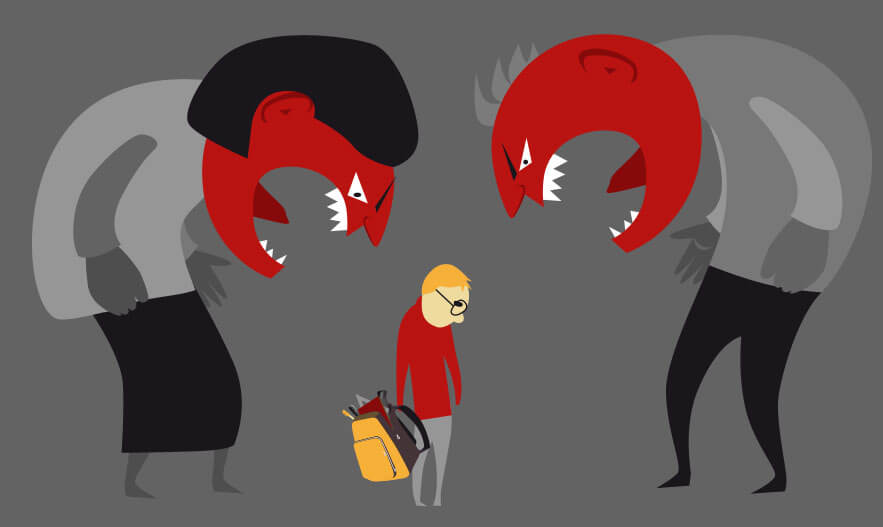It is not always easy to identify a toxic parent. Many of us were brought up by them after all! However, certain traits are common to most toxic parents. In this blog post, we will explore what toxic parent traits are and how you can cope with them. We will also look at the negative outcomes of toxic parenting and what therapies are available to help you. So if you think you may be in a toxic relationship with your parent, please read on.
Contents
Understanding Toxic Parenting
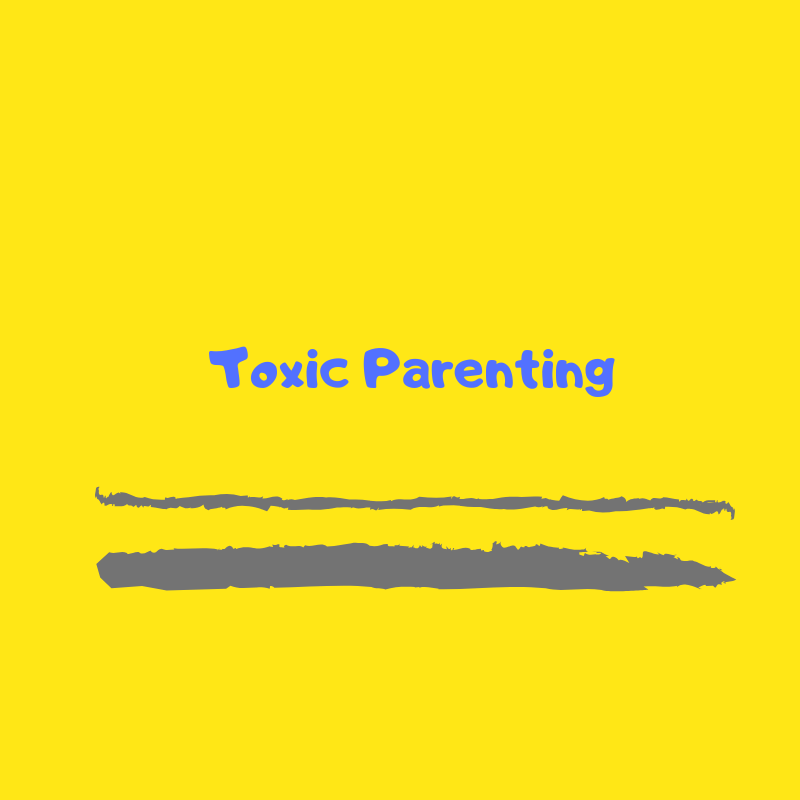
Toxic parenting can be broadly defined as a type of parenting that is damaging to the child. It can involve verbal, emotional, or physical abuse and can also lead to neglect. Toxic parents are often controlling and demanding and use their power over the child to get what they want. They may also make unrealistic demands on the child which set them up for failure.
Types Of Toxic Parenting
There are three main types of toxic parenting:
- Controlling parents who want to be in charge of every aspect of their child’s life. They micromanage and often spy on them, limiting their independence and freedoms.
- Overbearing parents are always pushing their children to excel academically or professionally. They put a lot of pressure on the child and may use emotional blackmail to get what they want.
- Abusive parents who inflict physical, emotional, or sexual abuse on their children. They may also be emotionally neglectful.
Types Of Abuse In Toxic Parenting
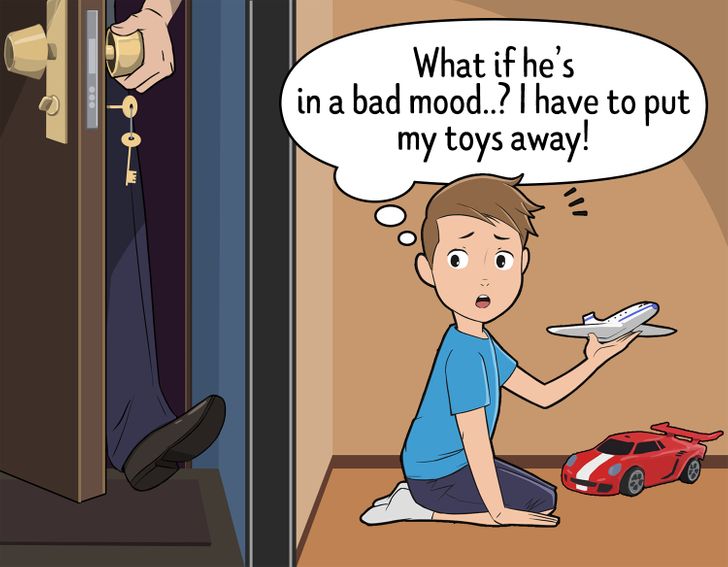
Verbal Abuse
One form of toxic parenting that is often overlooked is verbal abuse. This can involve insults, put-downs, and humiliation. Verbal abuse can be very damaging to a child and can leave them feeling worthless and helpless.
Example: “You’re so stupid. You’ll never be any good at anything.”
Emotional Abuse
Emotional abuse is another form of toxic parenting that can be very damaging to a child. It involves inflicting pain or distress on the child through words or actions. Emotional abuse can leave the child feeling scared, alone, and helpless.
Example: “I’m so ashamed of you. You’re making me look like a bad parent.”
Physical Abuse
It is the most obvious form of toxic parenting and is probably what comes to mind when most people think about abusive parents. Physical abuse can involve slapping, punching, or even burning the child. It can leave them with physical injuries as well as psychological damage.
Example: “If you don’t do what I say, I’ll hit you.”
Neglect
It is also a form of abuse and can be just as damaging to a child as physical or emotional abuse. Neglect occurs when the parent fails to provide for the child’s basic needs such as food, clothing, shelter, and medical care. This can lead to physical problems as well as emotional damage.
Example: “I’m too busy to spend time with you. Go play outside.”
Factors That Govern Toxic Parenting
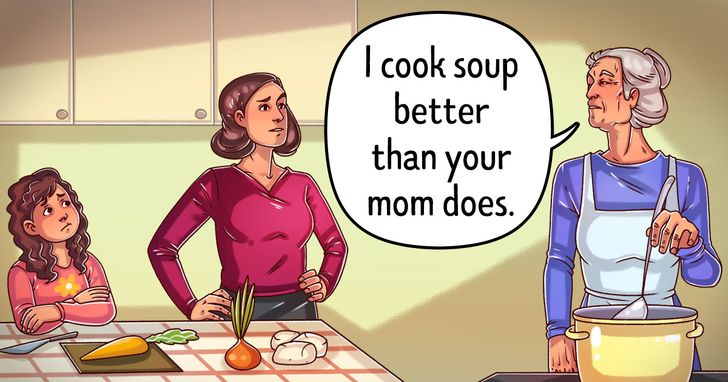
Several factors can contribute to toxic parenting. These include:
Mental health issues: Parents who are struggling with mental health problems may become abusive or neglectful of their children.
Substance abuse: Parents who are addicted to drugs or alcohol may be unable to care for their children properly and may also be abusive.
Stress: High levels of stress can take their toll on parents and may lead to them taking their frustrations out on their children.
Lack of parenting skills: Some parents may not have the necessary skills to care for a child properly and this can lead to frustration and anger
The personality of the parent: Some personality types are more likely to be toxic parents than others.
The dynamics of the family: If there is tension or conflict within the family, it can often lead to abusive or overbearing parenting.
The level of stress that the parent is under: If a parent is experiencing a lot of stress in their own life, they may take it out on their child.
The parent’s history of abuse or neglect: If a parent has been abused or neglected themselves, they may be more likely to abusive or overbearing parenting.
Relationship issues: If parents are going through a rocky time in their relationship, this can often lead to tension and conflict within the family and may result in abuse or neglect.
Know The Toxic Parent Traits
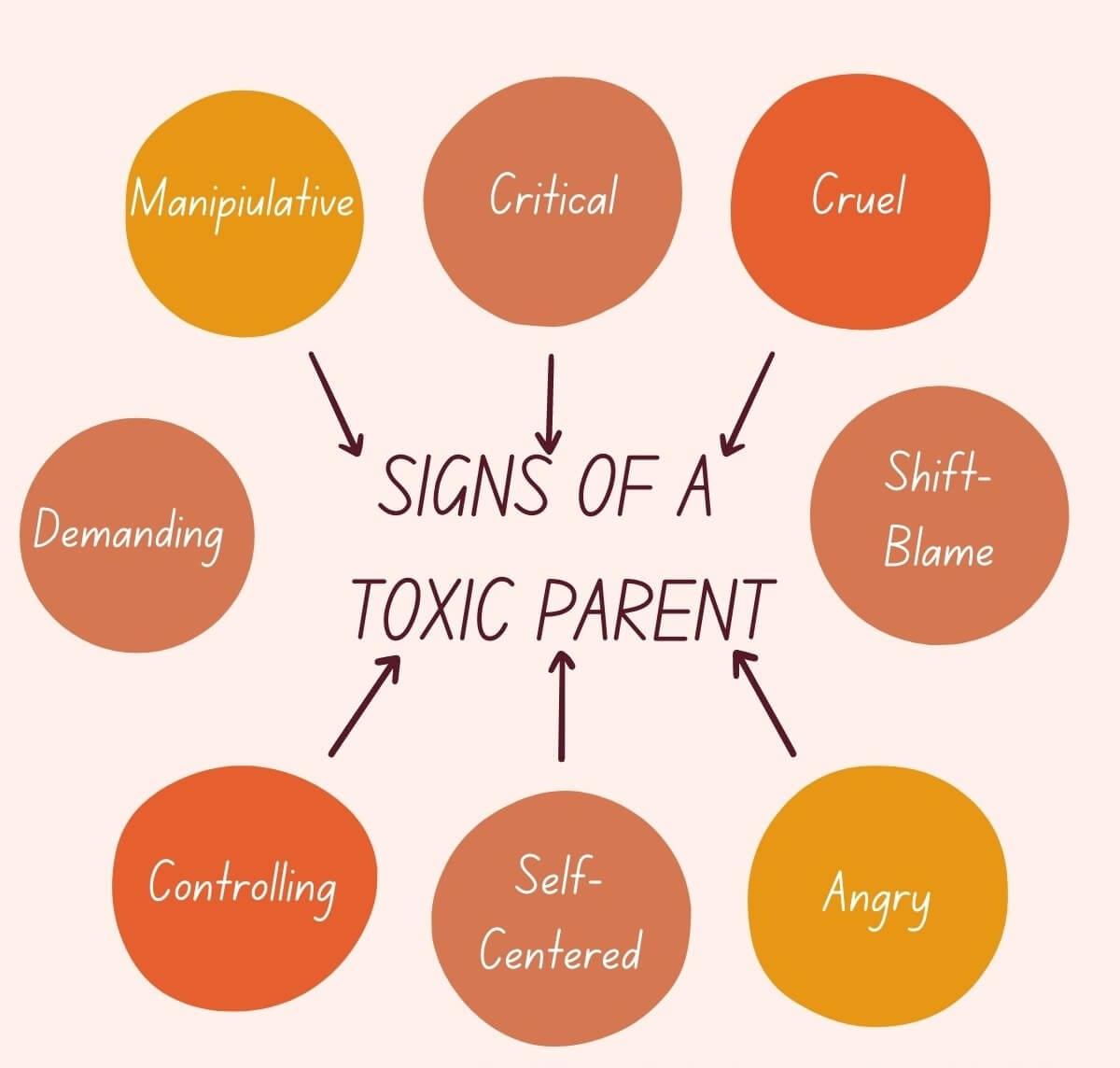
Several traits are common among toxic parents. These include:
Perfectionism: Parents who are perfectionists may feel like they need to have absolute control over their children and may become very angry and frustrated when they don’t meet their high standards.
Control freak: Parents who are control freaks may feel the need to micromanage every aspect of their child’s life and may become very angry if they try to independence.
Intense anger: Parents who have a lot of anger and aggression bottled up inside them may take it out on their children.
Impulsivity: Impulsive Parents may not be able to control their reactions and may lash out at their children in anger.
NOTE: Abusive parents often have a history of being abused or neglected.
Toxic Parents Vs. Manipulative Parents
It’s important to note the difference between toxic parents and manipulative parents. Manipulative parents are not always abusive, but they do use tactics such as guilt trips or threats to get what they want from their children. They may not have the same kind of intense anger that is common among toxic parents.
Toxic parents are different from emotionally unavailable parents. Emotionally unavailable parents may not be able to connect with their children emotionally and may not be able to provide the support that a child needs. However, they are not typically abusive or neglectful.
The Negative Outcomes Of Toxic Parenting

Toxic parenting can have several negative outcomes for children. These include:
Emotional problems: Children who are subjected to emotional abuse may develop depression, anxiety, or post-traumatic stress disorder.
Physical problems: Children who are physically abused may suffer from injuries such as bruises, broken bones, and even burns.
Behavioral problems: Children who are subjected to abusive or overbearing parenting may have problems with their behavior and may be more likely to engage in criminal activity or substance abuse.
Poor academic performance: Children who are raised in a toxic home environment may struggle in school and may not do as well academically as other children.
NOTE: Teens who are raised by toxic parents may be more likely to commit suicide. This is because they may feel like there is no way out and that they are trapped in a cycle of abuse.
Coping With Toxic Parenting
There are several things that you can do to help cope with toxic parenting/toxic parent traits. These include:
Talk to someone: It can be really helpful to talk to someone who understands what you’re going through. Talk to a friend, family member, therapist, or any other support system.
Create a safety plan: If you feel like you are in danger, it’s important to have a safety plan in place. This may include having a relative or friend you can go to if things get bad, having money saved up for emergencies, and keeping a packed bag ready to go.
Set Limits: It can be difficult to set limits with a toxic parent, but it is important to do so. This means setting boundaries on what you are willing to do or how you will be treated. You can also set boundaries for what is acceptable and not acceptable behavior from them. It is important to be firm and consistent in setting and enforcing these limits.
Take care of yourself: It’s important to take care of yourself both physically and emotionally when you are dealing with a toxic parent. Make sure to get plenty of rest, eat healthy foods, and exercise regularly.
Get support: Seek out support from friends, family, or professionals who can help you deal with the challenges of having a toxic parent.
Seeking Legal Intervention
There are times when the behavior of toxic parent traits becomes so dangerous or abusive that it is necessary to seek legal intervention. This may involve filing for custody or getting a restraining order. If you feel like you are in danger, it is important to reach out for help from professionals who can assist you in protecting yourself and your children.
NOTE: It can be difficult to set limits with a toxic parent, but it’s important to be firm and consistent. If you don’t set boundaries, the toxic parent will continue to behave in an abusive or overbearing manner. It’s also important to enforce the boundaries that you have set. If the toxic parent crosses a boundary, take appropriate action, such as walking away, setting a time-out, or sending them to their room.
Talking To a Professional
If you find that you are struggling to cope with a toxic parent, it may be helpful to talk to a professional. Therapists can provide support and guidance as you work through your difficulties. They can also offer strategies for coping with and managing the behavior of a toxic parent.
Therapies For Toxic Parenting
Several therapies can be helpful for parents who are dealing with toxic parenting. These include:
Cognitive-behavioral therapy (CBT): CBT is a type of therapy that helps you to change the way you think and behave. It can be helpful for parents who have trouble managing their anger or who feel like they are in a cycle of abuse.
Dialectical behavior therapy (DBT): DBT is a type of therapy that helps you to manage your emotions and tolerate distress. It can be helpful for parents who have a lot of anger and aggression.
Family therapy: Family therapy is a type of therapy that helps to improve communication and relationships within the family. It can be helpful for parents who are struggling with toxic parenting.
Medication: If you are experiencing symptoms such as anxiety or depression, your doctor may recommend medication. This can help to manage your symptoms and help you to better cope with your toxic parent.
Skills You Learn In Therapy
In therapy, you will learn a variety of skills that can be helpful in managing your toxic parent. These include:
Anger management: Learning how to manage your anger can help to reduce the tension and conflict in your relationship with your toxic parent.
Communication skills: Learning effective communication skills can help you to communicate more effectively with your toxic parent. This can help to reduce misunderstandings and improve the relationship.
Problem-solving skills: Problem-solving skills can help you to better manage difficult situations and conflicts with your toxic parent.
Self-care skills: Learning how to take care of yourself emotionally and physically can help you to better cope with the stress of dealing with a toxic parent.
The Experts’ View On Toxic Parenting
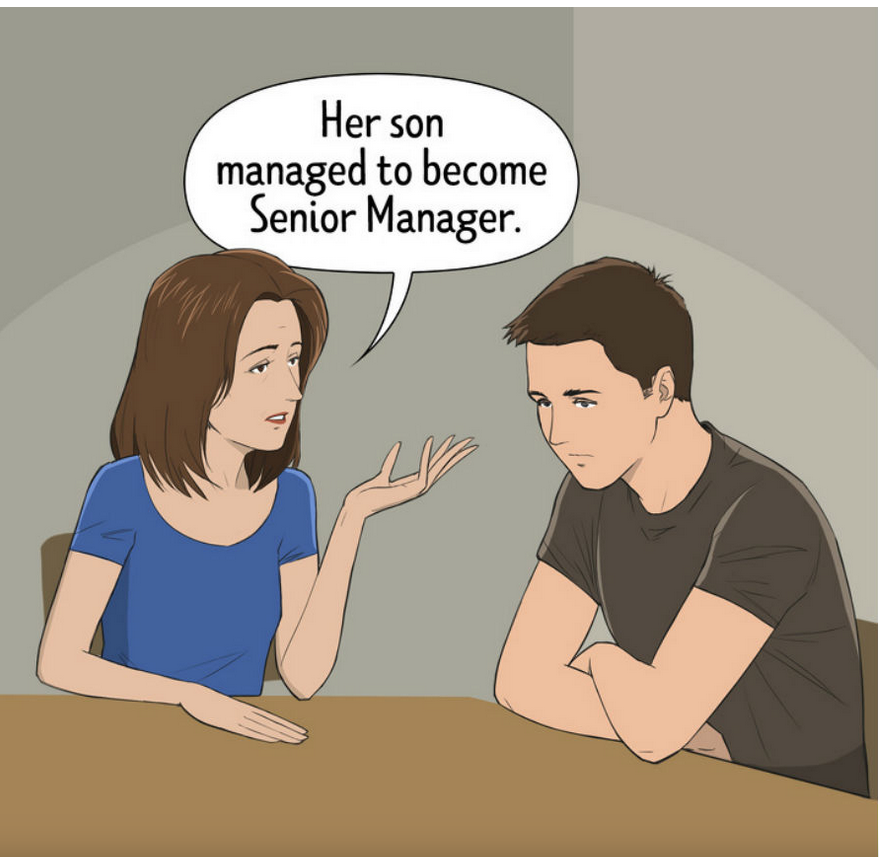
There is a lot of research on toxic parenting and the negative outcomes that it can have for children. Some experts believe that toxic parenting is one of the leading causes of mental health problems in children.
“Toxic parents are those who make their children feel like they’re never good enough. They criticize them, put them down, and make them feel like they can’t do anything right. This can have a lasting impact on a child’s self-esteem and mental health.”
– Dr. Joshua Klapow
“Toxic parenting is one of the most significant, but least recognized, contributors to emotional problems in children. It can lead to anxiety, depression, anger issues, and problems with self-esteem.”
– Dr. Dan Siegel
“Toxic parenting is one of the leading causes of mental health problems in children. It can lead to anxiety, depression, anger issues, and problems with self-esteem.”
– Dr. John Duffy
Case Study
Maria is a mother of two children. Her daughter, Sarah, is six years old and her son, Timmy, is four years old. Maria has always been a bit of a control freak and she expects her children to do everything perfectly. She constantly criticizes them and puts them down. She also makes them feel like they can’t do anything right. As a result, both Sarah and Timmy have developed anxiety and depression.
Books And Movies About Toxic Parents

Several movies and books deal with the issue of toxic parenting. These can be a helpful resource for parents who are struggling to cope with a toxic parent.
- Toxic Parents by Dr. Susan Forward
- The Drama of the Gifted Child by Alice Miller
- For Better or Worse by John Gottman
- My Brother’s Keeper by Bill Cosby
- The Glass Castle by Jeannette Walls
- Life with a Toxic Parent by Deborah Corvo
Review
“The Glass Castle” is a movie about a family who is dealing with the effects of toxic parenting. The father is abusive and the mother is neglectful.
“The Noonday Demon” is a book about an author’s experience with depression, which was caused by his toxic parents.
Conclusion
Toxic parenting can have negative consequences for both children and parents. It is important to understand the signs of toxic parenting and to seek out help if you are struggling.
There are many therapies available that can help you to cope with a toxic parent. In addition, some books and movies can provide support and insight into this difficult topic.
If you are struggling to cope with a toxic parent, please seek out help from a professional. There is support available to help you heal the wounds inflicted by your toxic parent. You are worth it.
A Word From Therapy Mantra
Your mental health — Your psychological, emotional, and social well-being — has an impact on every aspect of your life. Positive mental health essentially allows you to effectively deal with life’s everyday challenges.
At TherapyMantra, we have a team of therapists who provide affordable online therapy to assist you with issues such as depression, anxiety, stress, workplace Issues, addiction, relationship, OCD, LGBTQ, and PTSD. You can book a free therapy or download our free Android or iOS app.
